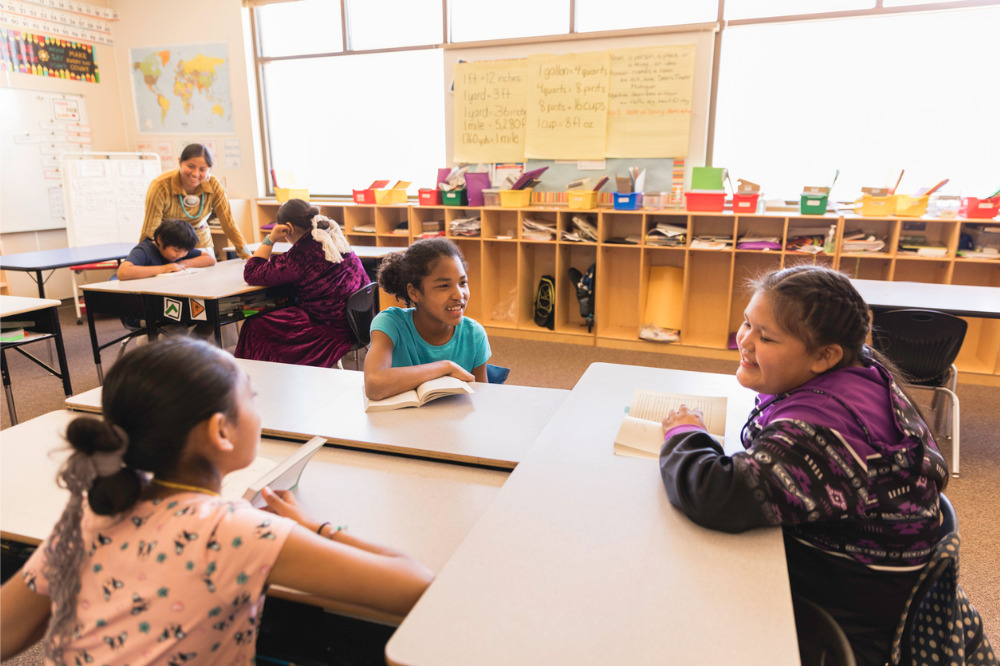
As Australia heads towards the national referendum on The Voice to Parliament, schools, governments, and communities are trying to create greater awareness about the importance of educating young people about Aboriginal and Torres Strait islander cultures, histories and reconciliation.
In particular, there have been calls for greater education about the truths of our shared histories. Telling the truth about our history not only brings to light past injustices and dispossession, but also acknowledges the strength and resilience of Aboriginal and Torres Strait Islander peoples and cultures. All of this helps us work towards building respectful and equal relationships between Indigenous and non-Indigenous Australians.
According to research from Reconciliation Australia, more than half of Australians believe education institutions should deliver formalised learning about the issue of reconciliation, and a staggering 95% of all Australians believe it’s important to know about the histories of Aboriginal and Torres Strait Islander people.
However, most people admit having little or no knowledge about these histories.
As part of its work to recognise and celebrate the vital role Australian teachers and students play in reconciliation, Reconciliation Australia runs the Narragunnawali Awards – Australia’s first and only national reconciliation in education awards for schools and early learning services.
A philosophy grounded in respect
In the lead up to applications closing for the Narragunnawali Awards 2023, Reconciliation Australia spoke to Tess Herring, Service Manager and Kylie Murdoch, Educational Leader from joint winners of the Early Learning category in 2021, Tumut Community Preschool. The two spoke to the impact of helping students and families engage more closely with the town’s local Aboriginal community.
“The impact of this approach has been really significant. It’s embedded in our philosophy and the way we work, and how children are educated at Tumut Community Preschool, it’s what we’re known for,” Murdoch said.
“We’re teaching children as young as three who may not have been exposed to First Nations perspectives about Wiradjuri language and culture. It’s also given all of us, the children, their families and the staff, a deeper respect for our First Nations cultures and peoples.”
Murdoch said that reconciliation at Tumut Preschool is driven by all staff, Indigenous and non-Indigenous, working together and in partnership with the local community.
Herring said children and their families now enjoy more meaningful connections with local elders like Uncle Pat and Aunty Sue.
“One of the biggest changes for our team has been our passion and advocacy to change the way we do things around reconciliation education and to challenge bias and discrimination,” Herring said.
“Reconciliation is about mending relationships, but you can’t achieve this if you’re not tackling the things that are continuing to cause problems. For us, we wanted there to be change, and for change to happen, we need to change attitudes.”
Herring noted the importance of helping children learn to be inclusive and respectful at an early age, as that is when their attitudes to the world around them begin to form.
“Children can begin to form racist attitudes from the age of three, so we wanted to provide children with a different narrative,” she said.
“However, it can be challenging to call out racism when you see it, especially with family and friends, but we’ve all made a commitment that we’re going to do that.”
‘A powerful ripple effect’
Murdoch said while it might seem that conversations about inclusiveness and respect might not achieve much, the ripple effect can be profound.
“After these discussions in the classroom, the children go home and have conversations with their family, they things they see in the community. They question when they see something that’s unjust, so it does have a big impact and a very powerful ripple effect,” she said.
“Over the years, our approach has led to some uncomfortable conversations over the years. We don’t shy away from teaching children about challenging concepts.” We teach these concepts in an age appropriate and sensitive way, and have taught them about the Stolen Generations, Sorry Day, the National Apology and National Aboriginal Childrens Day and the significance of these events.
We have been able to talk to families through these concerns and the outcomes have been more understanding with acknowledgement and support.”
Murdoch said the school reflects on these challenges as it progresses each year with those particular type of days.
“Last year, for Reconciliation Week, we did a project in the community where we hand-delivered Reconciliation Packs containing cards called pledges to over 100 local businesses. The cards were heart shaped in the colours of the Aboriginal and Torres Strait Islander flags. The packs contained a note that asked each business to make a pledge of action towards reconciliation,” she said.
“We explained to all the businesses why we’re passionate about advocating for reconciliation and offering some suggestions as to how they could progress reconciliation.”
Murdoch said while there were some businesses and organisations that pushed back and refused to engage, the vast majority got involved in the initiative.
“For those organisations that did engage, it’s now time for them to reflect on how they’ve gone with their pledge over the last twelve months, how they progress and keep that going.”
Herring said it has been empowering to think of how children and educators have been the catalyst for such important social changes in Tumut.
“It really does need to start with the children, and this is something Uncle Pat strongly believes. If we can get children understanding, being accepting and advocating, then things will change.”


